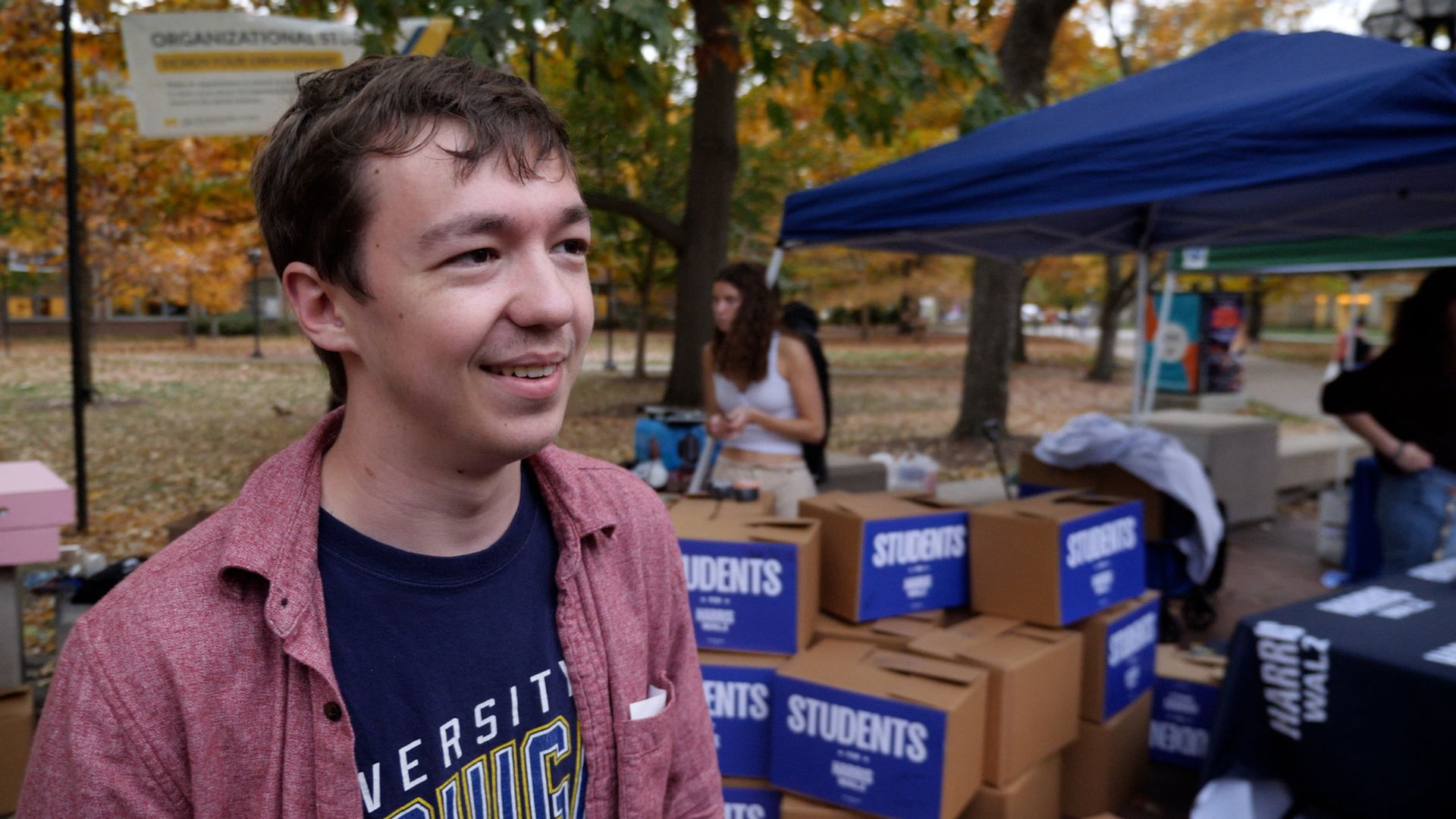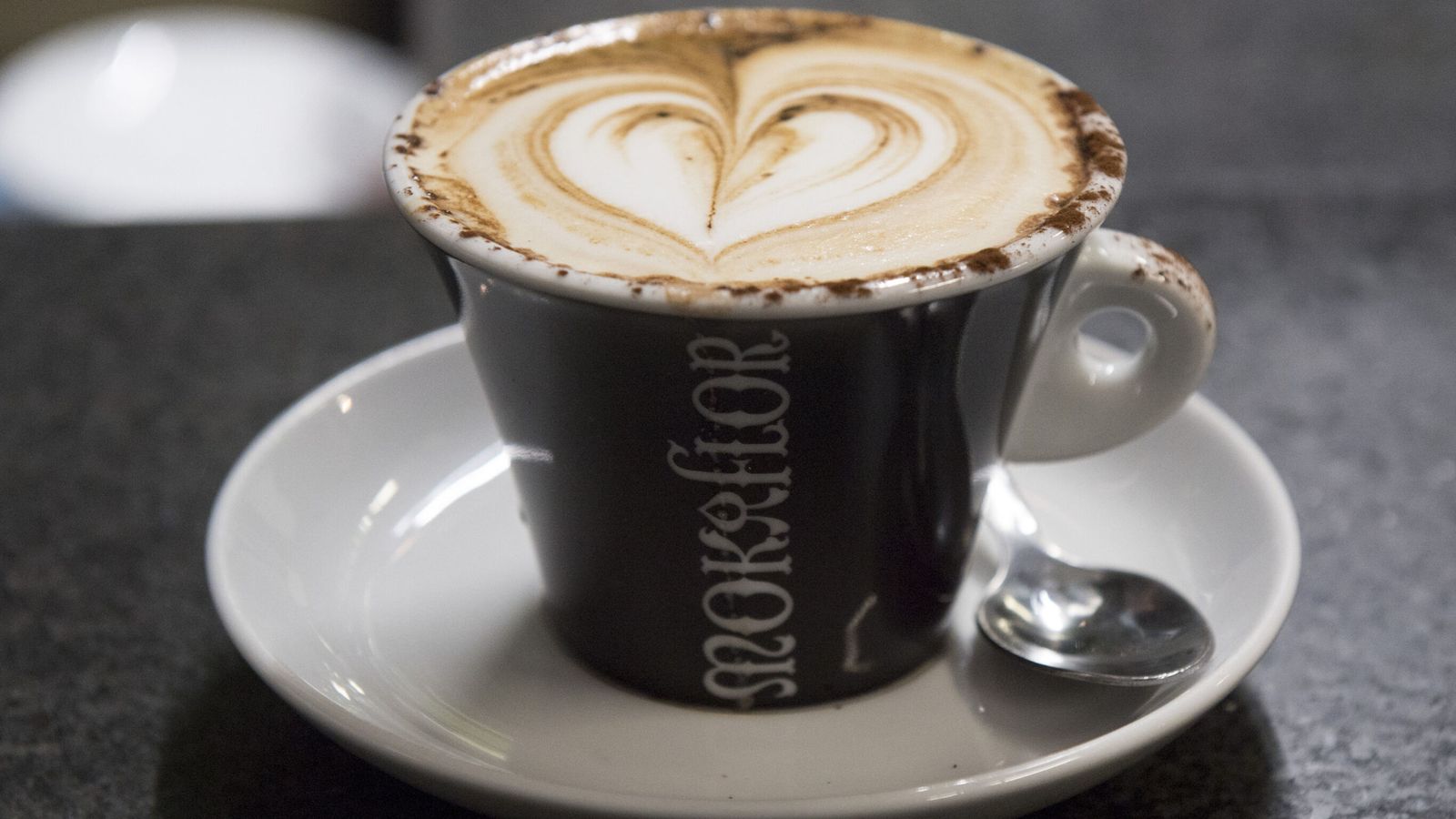In the heart of the University of Michigan’s Ann Arbor campus, a cookie is handed out for an early vote.
Artisanal doughy treats piled with square chocolate chips and cream-coloured cookies with blue icing are laid out in boxes on top of a Harris/Walz stand in the main square next to a blue wall of boxes plastered with “students for Harris and Waltz” signs.
“We’ve had a lot of good energy here and because Ann Arbor is such a blue area so much of the obligation falls on us to not just convince students but to actually turn them out to vote,” says Alec Hughes, co-president of College Democrats at the University of Michigan.
“It’s been going great so far. We’ve had I think, if I had to guess, 15 to 20% on campus that voted early and we’re still five days out from election night.”
US election latest: Trump predicts what he needs to ‘win the whole ball game’
I trace the stream of students collecting their free cookies to the early voting centre around the corner.
Through the glass wall of the modern campus building, I see first-time voter Olamiposi move through the voting centre to cast her ballot.
“It would be really amazing to be able to witness the first female president this country has ever had. So I wanted to be a part of making that happen,” she says, buzzing with excitement.
Based on early voting data, Gen-Z-led organisation Voters of Tomorrow predicts youth voters are on track to break turnout records.
‘It’s important to vote’
In the University of Michigan campus in Flint, early voting is crucial for underprivileged students to have a say.
“Our students have incredibly complicated lives,” says Dr Jason Kosnoski, professor of political science at the University of Michigan-Flint.
“They’re non-traditional. They might have families. They might have all sorts of obligations. So, I mean, these are people whose voices usually aren’t heard.”
Dr Kosnoski says early voting is particularly important for his students as it means they have enough time to cast their ballots.
“If they were only allowed to vote on one particular day, they may not get the chance to,” he adds.
Keep up with all the latest news from the UK and around the world by following Sky News
Women worry what will happen if Trump wins
Back on the Ann Arbour campus, 20-year-old Elena Mann is happy to vote in a swing state for her first time.
“New Jersey is very Democratic and so I’m lucky to be from a very Democratic area. But I’m also very happy that I can be in a swing state where my vote will carry a little bit more than New Jersey,” she says.
But fear for her safety sits underneath her excitement. Like many other women on campus she’s worried about what will happen if Donald Trump wins.
Please use Chrome browser for a more accessible video player
Be the first to get Breaking News
Install the Sky News app for free
Is there a fear around criticising Mr Trump? She is the third student I speak to who alludes to Mr Trump without mentioning his name.
“I would definitely say so,” she responds.
“In areas where you don’t know what people’s opinions are – among friends, of course it’s a different story – but just out and about I would feel a little bit uncomfortable about it. You don’t know how they will react.”
Read more:
US election poll tracker: Who is favourite to win?
Your ultimate guide to the US election
‘I feel compelled to vote’
Students are pouring into nearby bar Good Time Charley’s to start their night. Among them are Trump supporters having a quick drink – young men who work in Michigan’s vital automobile industry and are banking on the former president to fix the economy.
There is no visible conflict with the enthusiastic young Democrats around them, just a feeling of contempt for the status quo and a need to stop the continuation of a Biden administration through Kamala Harris.
“This year I am compelled to vote for Trump,” says autobody technician Joseph Michael Grant.
“I turned 18 and I didn’t feel compelled to vote. I am 22 now and I feel compelled to vote.”







